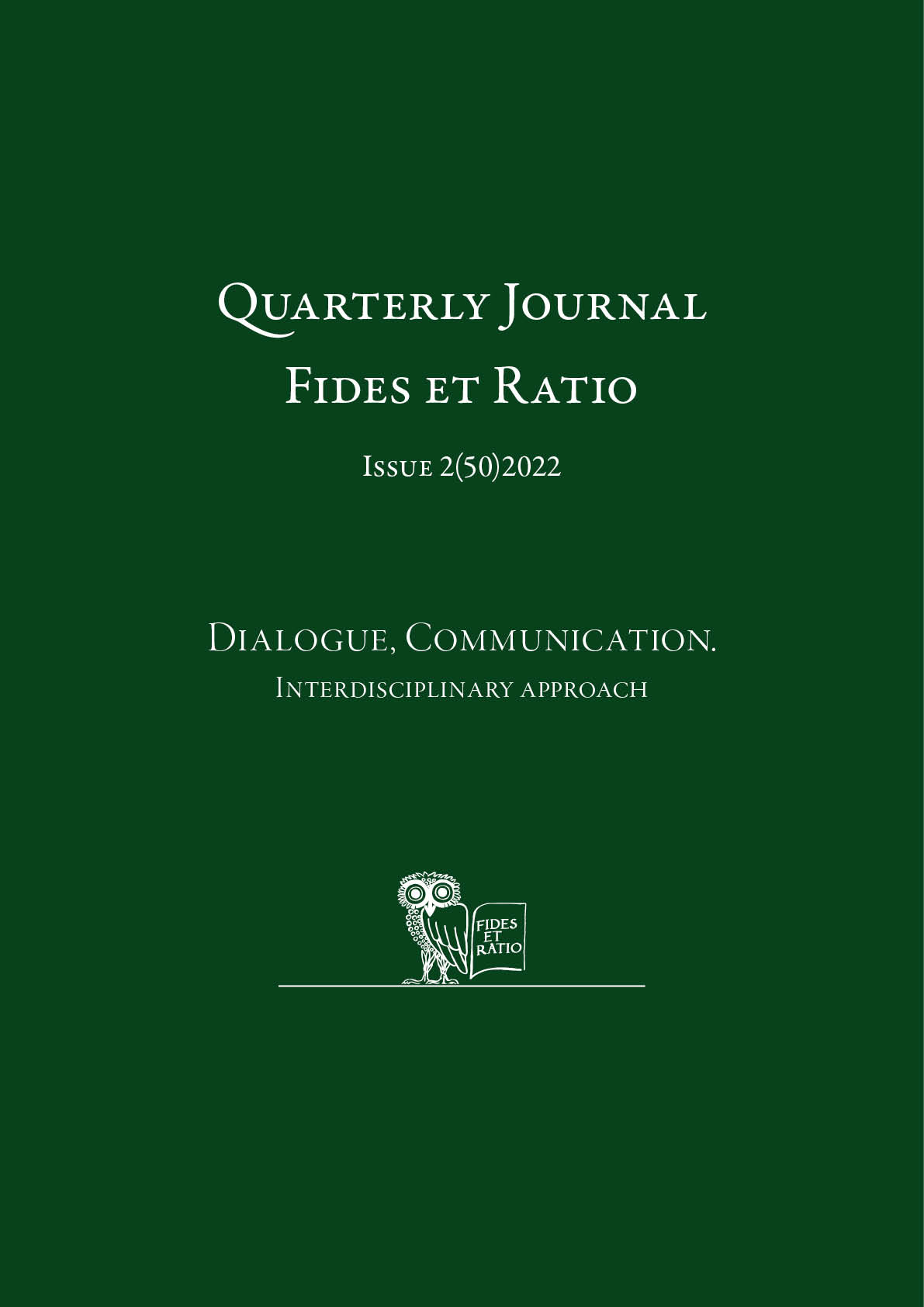Abstract
Philip Clayton, an American theologian and philosopher, devotes a significant part of his research work to seeking bridges between theology and the natural sciences. The position he takes is the Christian version of panentheism. Within it, the world is a part of God, but God is more than the world; the world is embodied in the divine, even though God goes beyond the world. All beings exist only through participation in divinity. The version of panentheism advocated by Clayton further suggests that God is connected with the world in a sense analogous to the relationship of our minds to our bodies. Many contemporary authors critically assess panentheism, including the version proposed by Clayton, presenting both theological and philosophical arguments against this position. In light of these allegations, the position of panentheism is not based on the Bible, does not fit into the Christian doctrine, and goes beyond the traditional standards of Christian thinking. The arguments and explanations presented by traditional theism, open to science, seem to be more accurate, logical and consistent with the Christian vision of God’s relationship with the world.
References
Biernacki, L. (2014). Introduction: Panentheism Outside the Box. In: L. Biernacki, P. Clayton (eds.), Panentheism across the World’s Traditions, 1-17, Oxford–New York: Oxford University Press.
Bracken, J.A. (2014). Panentheism in the context of the theology and science dialogue, Open Theology, 1, 1-11. https://doi.org/10.2478/opth-2014-0001
Clayton, P. (1997). God and Contemporary Science, Grand Rapids: WM. B. Eerdmans Publishing Company.
Clayton, P. (2001). Panentheist Internalism: Living within the Presence of the Trinitarian God, Dialog: A Journal of Theology, 40(3), 208-215.
Clayton, P. (2004a). Mind and Emergence. From Quantum to Consciousness, Oxford–New York: Oxford University Press.
Clayton, P. (2004b). Natural Law and Divine Action: the Search for an Expended Theory of Causation, Zygon, 39(3), 615-636.
Clayton, P. (2004c). Panentheism in Metaphysical and Scientific Perspective. In: P. Clayton, A. Peacocke (eds.), In Whom We Live and Move and Have Our Being. Panentheism Reflections on God’s Presence in a Scientific World, 73-91, Grand Rapids–Cambridge: William B. Eerdmans Publishing Company.
Clayton P. (2005). Kenotic Trinitarian Panentheism, Dialog: A Journal of Theology, 44(3), 250-255.
Clayton, P. (2006a). Conceptual Foundations of Emergence Theory. In: P. Clayton, P. Davies (eds.), The Re-Emergence of Emergence. The Emergentist Hypothesis from Science to Religion, 1-31, Oxford–New York: Oxford University Press.
Clayton, P. (2006b). Emergence from Quantum Physics to Religion: A Critical Appraisal. In: P. Clayton, P. Davies (eds.), The Re-Emergence of Emergence. The Emergentist Hypothesis from Science to Religion, 303-322, Oxford–New York: Oxford University Press.
Clayton, P. (2006c). O Bogu, osobie i neurobiologii w perspektywie emergentyzmu. W: T. Sierotowicz (red.), Stwórca–Wszechświat–Człowiek. Tom II, 541-597, transl. T. Sierotowicz, OBI-Biblos, Kraków–Tarnów.
Clayton, P. (2006d). Od fizyki kwantowej do teologii,. W: T. Sierotowicz (red.), Stwórca–Wszechświat–Człowiek. Tom II, 598-638, transl. T. Sierotowicz, Kraków–Tarnów: OBI–Biblos.
Clayton, P. (2006e). The Emergence of Spirit: From Complexity to Anthropology to Theology, Theology and Science, 4(3), 291-307
Clayton, P. (2008). Adventures in the Spirit. God, World, Divine Action, Minneapolis: Fortress Press.
Clayton, P. (2009a). In Quest of Freedom. The Emergence of Spirit in the Natural World, Göttingen: Vandenhoeck & Ruprecht.
Clayton, P. (2009b). Reclaiming Liberal Faith: Toward a Renewed Theology of Integration, American Journal of Theology & Philosophy, 30(1), 48-71.
Clayton, P. (2010). Panentheisms East and West, Sophia, 49, 183-191.
Clayton, P. (2012). Religion and Science. The Basics, London–New York: Routledge.
Clayton, P. (2015). The Recent Ex Nihilo Debate and the Radical Contingency of God, Philosophy, Theology and the Sciences, 2(2), 178-193.
Clayton, P. (2017). How Radically Can God Be Reconceived Before Ceasing To Be God? The Four Faces of Panentheism, Zygon, 52(4), 1044-1059.
Cooper, J.W. (2006). Panentheism: The Other God of the Philosophers: From Plato to the Present, Grand Rapids: Baker Academic.
Craig, W.L. (1999). Review: God and Contemporary Science by Philip Clayton, Religious Studies, 35(4), 493-498.
Desmond, W. (2003). Review: The Problem of God in Modern Thought by Philip Clayton, Religious Studies, 39(3), 359-363.
Drees, W.B. (1999). God and Contemporary Science: Philip Clayton’s Defense of Panentheism, Zygon, 34(3), 515-525.
Gillett, C. (2003). Physicalism and Panentheism: Good News and Bad News, Faith and Philosophy, 20(1), 3-23.
Hegel, G.W.F. (2011). Nauka Logiki. Tom I, transl. A. Landman, Warszawa: Wyd. Naukowe PWN.
Jackelen, A. (2006). Review: Emergence Theory–What Is Its Promise? Emergence Every Where?! Reflections on Philip Clayton’s Mind and Emergence, Zygon, 41(3), 623-632.
Kowalczyk, S. (1991). Koncepcja Absolutu w pismach Hegla, Lublin: Towarzystwo Naukowe KUL.
Maziarka, T. (2020). Bóg, wszechświat i ludzki umysł. Koncepcja emergentnego umysłu w ujęciu Philipa Claytona, Tarnów: Biblos.
Moltmann, J. (1995). Bóg w stworzeniu, transl. Z. Danielewicz, Kraków: Wyd. Znak.
Oakes, E.T. (2000). Review: God and Contemporary Science by Philip Clayton, The Thomist: A Speculative Quarterly Review, 64(1), 140-143.
Sokołowski, P. (2015). Panenteizm jako postmodernistyczne Objawienie? Kilka uwag krytycznych na marginesie książki Davida Ray’a Griffina „Panentheism and Scientific Naturalism”, Studia Nauk Teologicznych, 10, 221-242.

